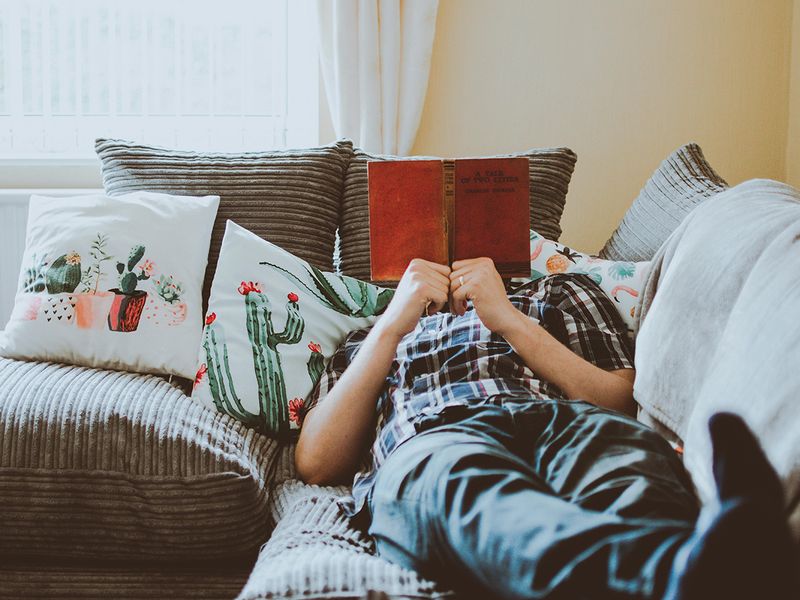
Ever felt like you’re running on fumes while staring at the computer screen with a rather glazed focus? We’ve all been there: Pushing ourselves to the limit, only to feel burnt out and somehow even less productive.
Here’s a key ingredient to productivity that you might have overlooked: Rest. Rest and work are like two parts of a wave, as Korean researcher Alex Soojung-Kim Pang summarised in his book, Rest: Why You Get More Done When You Work Less.
Rest is not an optional leftover activity, he says. Work and rest are actually partners. You can’t have the highs without the lows. The better you are at resting, the better you are at working, he states.
As he says, think of rest like singing or running. Everyone basically knows how to do it, but with a little work and understanding, you can learn to do it a lot better. You’ll feel a lot more refreshed, if you work at it more.
Sounds confusing? Don’t worry, we’ll break it down. As experts explain, instead of burning the candle at both ends, master the art of taking a strategic pause. This isn’t about slacking off; it’s how you optimise your rest time for ultimate recharging and productivity.
‘Full steam ahead’ approach is a sure case for burnout

The ‘always on’ mentality is a sure shot for disaster.
Think of yourself driving a car in full speed, as Helen Broderick, a Dubai-based corporate coach and wellness expert explains. You do go fast for a while, but eventually, you have an accident.
“We need to switch off this ‘always on’ mentality; it damages the productivity, team morale and the well-being of a person,” she explains. This leads to a burnout. “You just feel permanently exhausted, irritable and have no motivation to work,” she says. “You begin to feel overwhelmed by feelings of doom about everything,” she adds.
This fractured boundary between work and personal space, is what leads to burnout. So, what is the solution? “For starters, a person needs to separate themselves from their job. They need to realise that their self-worth isn’t tied to their profession,” she says.
The guilt overload
Why do we feel guilty if we are not constantly working? It appears to be a mutual experience.
Katelyn Shaw, an American public relations professional struggles to hit the pause button, even on vacations. “I always have to be tuned into work; I have never been able to stop that. I’ve always been conditioned to believe that I need to be available all the time, even if I don’t want to be. I do feel guilty if I’m without work,” she says. She isn’t the only one, her friend, Lisa George, a British entrepreneur based in Dubai, has suffered health consequences, owing to her inability to switch off. The same reason: Guilt. “I would like to say I’m better now, than I was before. However earlier, I would work, even when I was unwell. Once, I worked so hard to plan an event, that I actually lost consciousness at the time and had to be hospitalised for a couple of days. Finally, I took several weeks off, because I was so weak and tired. It was as if my body was telling me to please slow down,” she says.

A large majority of us are able to do our jobs from anywhere, from our phone, from the car, from a coffee shop. This is exactly the reason why it is critical for employees to plan leave and switch off. We all need time to de-stress, and allow our nervous systems to calm down...
There are many more individuals to share their stories of being overworked, illness and anxiety. One marketing professional who doesn’t wish to be named fears she will get the rap for taking a break, and so hasn’t taken leave in over two years. Thelia Ponsford, a Canadian working professional realised her “mistake” after she continued working through a dangerous fever. The common thread: Everyone feared being called lazy.
“People often fall into the trap of thinking rest equals slacking off, like they're somehow letting the team down by taking a breather,” says Broderick. However, taking a break isn’t laziness; it’s about recharging your batteries she adds. They need to absolve themselves of such guilt: You need to prioritise yourself first, before your work.
Moreover, technology makes it harder to switch off. "A large majority of us are able to do our jobs from anywhere, from our phone, from the car, from a coffee shop," explains April Kearns, a Dubai-based Human Resources director. "This is exactly the reason why it is critical for employees to plan leave and switch off. We all need time to de-stress, and allow our nervous systems to calm down," she says. She propagates taking several tea breaks and lunch, which allow people to feel less lethargic. "It helps people to have better mental health and concentrate for longer periods of time," she says.
The brain’s ‘default’ network

Rest doesn’t just fend off burnout: It sparks creativity in the brain, too. When you are in a relaxed, calmer state, your brain ‘loosens’ up, as Carey Cole, a British Dubai-based psychologist explains.
“When we are resting, our brain is still active. It goes into the default mode. It looks at problems, examines solutions from different angles and searches for new information. These processes aren’t under our control, but when we rest better, we can actually support them in a more efficient manner,” she says. When the brain is allowed this space, it can actually find something that deserves our attention.
When you just press pause, your creativity can take flight. “When you are awake, your brain is constantly receiving information. A mental break provides time for fresh perspectives and sparks creativity. This is also particularly useful for problem-solving,” she adds.
How can we rest properly and still be productive?

Rest doesn’t just mean catching some sleep.
Establish a routine
Routine often conjures up images of mundane tasks, and stifling tasks. It’s often misunderstood to be the antithesis of creativity, says Cole. However, in fact, it can be just the opposite: It can also spark creativity. If you pause and start your work at specific times allowing yourself to rest, you might have a better chance of being productive at work.
In a 2006 study titled Routinisation, work characteristics and their relationships with creative and proactive behaviours, published in the University of Kostanz, Germany, hundreds of workers at a tech company were studied. Researchers compared the level of routine in their daily work with their creativity, measured by the number of creative ideas submitted to managers. It was observed that employers with higher levels of routine were more likely to submit creative ideas. Those who had stronger control over their routines, in terms of tasks and scheduling, performed even better.
'You have to go away to come back'
As Mehreen Omar, Founder and CEO, SupperClub Middle East explains, one of the best way to explain the productivity-rest cycle is, is “you have to go away to come back”. "It applies to every aspect of life, including business. Just as our bodies need sleep to recharge, our minds require downtime to excel," she says. "Plus, let's face it, nobody does their best work when they're exhausted. Taking breaks and ensuring adequate rest allows us to reset and approach tasks with renewed energy and clarity."

Let's face it, nobody does their best work when they're exhausted. Taking breaks and ensuring adequate rest allows us to reset and approach tasks with renewed energy and clarity...
'Ample rest is the cornerstone...'
Contrary to the prevalent notion that productivity stems from relentless work, ample rest is a cornerstone of sustained performance, says Rowen Astrom, a licensed NLP Business Master Practitioner and performance coach. "Adequate sleep rejuvenates the mind and body, enhancing cognitive functions such as concentration, problem-solving, and creativity. Moreover, restorative breaks throughout the workday prevent fatigue and help us maintain focus," she says. By prioritising work-life balance and wellness initiatives, people can show their commitment to employee wellbeing and performance. They need to be encouraged to take regular breaks and offered flexible schedules.

Adequate sleep rejuvenates the mind and body, enhancing cognitive functions such as concentration, problem-solving, and creativity. Restorative breaks throughout the workday prevent fatigue and help us maintain focus...
You could also provide them with designated areas for relaxation, as that can contribute to higher retention and productivity rates.
Walking
Walking helps to quieten the mind, as Cole says. “We get into this meditative state. We are also more aware of our internal world. We become observers of our own thoughts and feelings while walking,” she elaborates further. This also encourages creativity as it leads to de-focused attention, and allows new insights to emerge.
Short naps
A brief nap never hurt anyone.
Take a brief nap of about 20 minutes, says Cole. This is enough to refresh your mind. It increases alertness and boosts your energy. “It really helps to recharge your mental batteries,” she says.
Scheduling time for your well-being
Drop the all-day, free-for all, says Nassima Menari, a mindset and corporate wellness exper based in Dubai. Block out dedicated time for focused work, breaks, self-care and include buffer periods between meetings to avoid feeling rushed.
Prioritise
Not all tasks deserve time and investment. “Identify your most critical jobs, take them, during your peak energy jours. Delegate or reschedule less urgent times,” says Menari.
Breaks every 60 to 90 minutes
Step away from your desk and work, every 60 to 90 minutes. Take a break, stretch, or go outside, says Menari.









